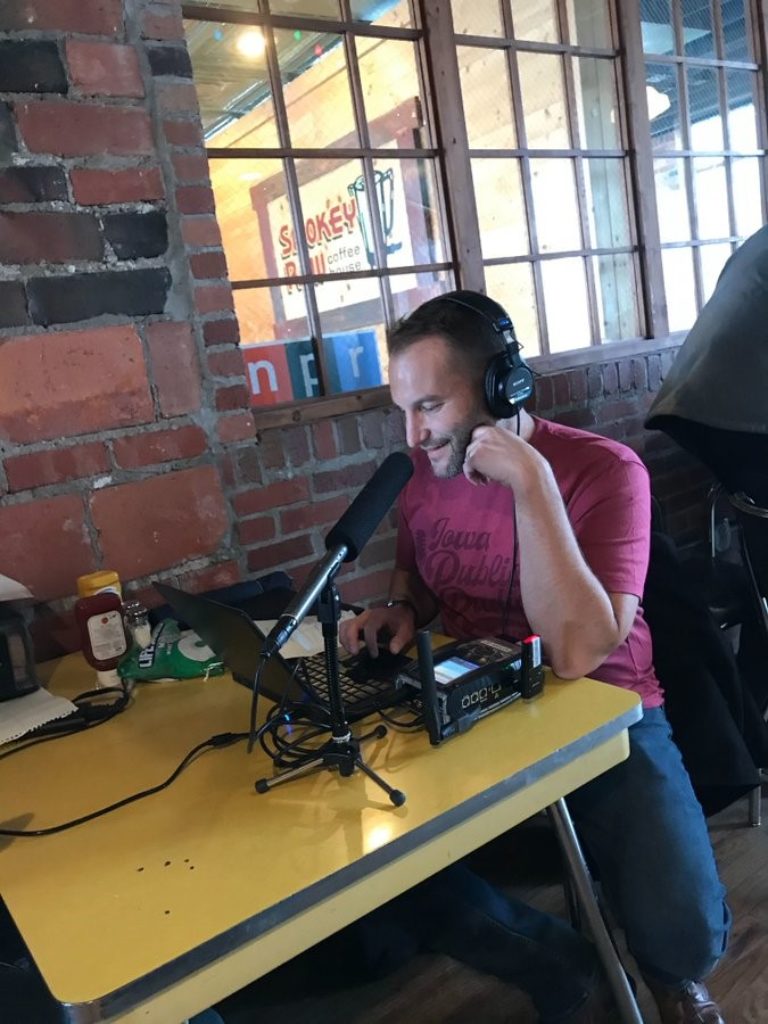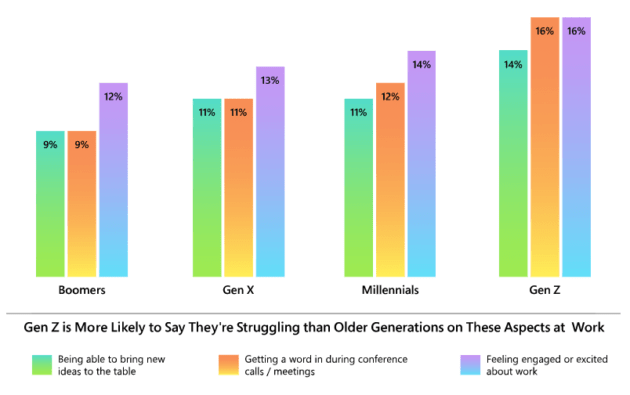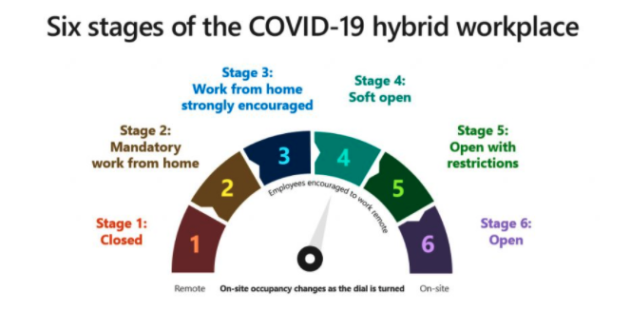 There’s an old marketing saying:
There’s an old marketing saying:
Culture eats strategy for breakfast. That means that a company’s vibe, energy level, morale – you name it – almost always trumps its business plan. Internal culture matters – especially in radio.
Even radio naysayers who celebrate the good old days will admit that even today’s modernized, clustered radio buildings are often fun places to work, spend time, and commune.
Until the arrival of COVID, that is.
In the past 13 months, radio has proved it can function in a largely remote environment. The on-air talent, sales department, and administrative workers have all functioned well in this pandemic-influenced environment. Many station buildings are still closed – especially the ones owned and operated by radio’s biggest companies. It may be months before many of them reopen.
And many remote workers are, in fact, not at all tired of doing their jobs in their PJs, surrounded by the trappings of home – partners, kids, pets – you name it. In fact, a new research study by the Robert Half Company reveals that one in three current employees may quit “if WFH ends.”

While not all workers are enamored by the idea of continuing to come into the office – or station – what’s the toll on workplace culture?
For mature operations, perhaps the damage is minimal. When many employees have been on board for several years, Zoom meetings, phone calls, and even texts can suffice as at-work shorthand.
We may, in fact, be heading for a hybrid solution, where employees will return to the workplace on certain days. Microsoft, Amazon, Facebook, and other big tech companies are in the midst of plans to devise these mix and match solutions for their headquarters and satellite offices.
Why?
Because culture matters.
And while most workers have adapted to WFH – and some prefer it – its long-term toll on the esprit de corps is what’s at stake if this goes many months longer.
It has been especially traumatic for new employees, especially those more accustomed to fraternity parties than department head meetings:
Gen Zs.
Newly minted workers have been hardest hit by WFH, making it more difficult to learn, adjust, and fit in. They don’t carry a sense of the culture and history of an organization with them. A Microsoft study broken out by generations tells an important story about how culture has been shattered by remote work among the youngest employees – Gen Z workers. They’re the ones that need the most mentoring and guidance, especially when it comes to fitting in.

The lesson in 2021 for radio?
WFH eats station culture for lunch…and dinner.
As broadcast radio companies begin to devise ways in which to bring remote employees together, internal event development and promotion may become a way to reconnect workers from all departments. And a lot of good thinking is going into figuring out how to bring employees back.
Microsoft’s “Hybrid Workplace Dial” has less to do with timelines, and more to do with staging out how companies – and radio stations – can help return to some semblance of normalcy:
 Radio stations may find it will require even more planning to re-engage employees post-COVID than it did to hastily make arrangements last March to get everyone operating outside the station.
Radio stations may find it will require even more planning to re-engage employees post-COVID than it did to hastily make arrangements last March to get everyone operating outside the station.
Because in radio, culture matters.
- Media And Technology In 2025: Believe It Or Not! - April 18, 2025
- In Radio, You Just Never Know - April 17, 2025
- The Secret To Making A Great Podcast (And Great Radio) - April 16, 2025




Here’s your sequel blog: “How has the culture-shift changed what comes out of the speakers and devices?” It will take a lot of focus groups over the next year… and some psychologists. 🙂
I’m afraid you’re right about this, Ron. Thanks for the comment.
Great point. We’ve been discussing how voice tracking was eroding station culture for a few years now, and Covid may be the “nail in the coffin. Back in the day (you know how old I am), we saw all of our fellow jocks and other colleagues daily. Everyone interacted with management. The stations had a “feel” about them. Station culture. Now, you can go weeks, if not months without seeing someone. There are no “lunches” or impromptu get togethers. Nobody “hangs” anymore. Radio stations have been heading toward this for years! Now I hear some big companies are headed for “virtual” stations, that just exist in the cloud! It sure is a long way from the Google campus.
Gone are the days of going into the transmitter room or propping open the back door to ‘burn one’ with the promotion guy and the engineer. Now, just burn one at home after you’ve picked up from the local dispensary. Kinda’ sad.
I agree that like so many other trends, COVID has accelerated the erosion of station culture. It certainly isn’t getting any easier. 🙂
WFH = WTF for me Fred. I feel like a one-man band most days surrounded by empty offices, cubicles and worst-of-all, studios. I’m a “hallway guy” and love the juice of being in the company of talented people. Like Tom Cruise in “A Few Good Men” – I need my bat. 🙁
For the truly social employees and managers, this has been a rough year. Thanks, Don.
Hi Fred. I share the following thoughts in addition to your comments, NOT as a counter to them.
I’ve been the program director of 11 radio stations. Each station has had a culture separate from the station’s culture. This is a deliberate strategy and has helped keep the programming team together despite more than one douche bag G.M. or toxic corporate culture.
While my programming team may feel distant from the rest of the station staff, we’re still united and understand that our job is to entertain, stay connected to, and inform our listeners. My stations’s content has embraced COVID-19, social distancing, and all the other disruptions to listeners lives as a way to be relevant and bond with the listener.
It can be done and crafty programmers can pull it off. But for how long. And I worry about those “new kids on the block.” Thanks!
Work from home was inevitable. Especially with the pivot most of the bigger radio giants have made towards digital, I have a higher end production computer and set up at home than what I would have been normally provided. Why am I required to go sit in an office, using technology that is supplied to me at an underpowered state, just to be able to be day dreaming about the moment I can go home and actually get my work done?
Yes, I want to be in the station to do big group projects, interact with coworkers and my team, but outside of those specific needs, I have no use of going into a station anymore. We record our syndicated show on Mondays, hammer out plans for what everybody is doing the rest of the week, and then spend the rest of our team delegating what we are doing and when on our own schedules.
As long as work is getting done, who cares how long it took me to get it done? The biggest reason radio companies want people to return to work in offices is so that they can stand over your shoulder and make sure that you never have a moment that you aren’t pushing your limits. “Oh, you finished that assignment early? Looks like that means you can also start doing the job of three other departments!”
I like my separation of work and home. You give me tasks and objectives, I get it done, how I get it done is up to me as the contracted employee.
I think you speak for a lot of people making the transformation to remote work very well. You also sound like a old pro who doesn’t need parental supervision. As I pointed out in the post, the people hurt by you and others staying home are the youngest members of the team – those in need of learning, mentoring, and friendship. If you believe they are the future of radio, it is a problem. Thank you for the comment.
No more playing dice and pounding a shot on Friday afternoons with the morning show host in Salinas, CA.
Probably not, no.
I cannot speak to my large market friends, but I know the vast majority of us small market guys, including my own, have continued to work at the station. The sole exception being last spring when everything was shut down for several weeks. Other than that, we’ve all been at the station. Every day.
I do agree remote work in many instances erodes the culture. And let’s be honest, radio is or should be a culture of collaboration and creativity. In my opinion, it’s hard to have the same creative “brainstorming sessions” on a Zoom call.
The last point I’d like to make is this: Working from home “effectively” requires the employee to be extremely disciplined. His or Her work ethic, ability to time manage and stay focused needs to be exceptional. I’m not convinced that the majority of adults are all that adept at those skills. I’m not convinced most owners or managers, whether radio or any type business, have the confidence employees can WFH and it be productive (in the long run) for their business. We’ve only been doing this for a year. Let’s see what the “numbers” say two years from now when there is a track record.
Michael, I agree we need more time to better understand how it all plays out. But I believe radio is a more culture-driven business than most. Over time, people will want to be back in the building. Thanks.
Imagine WKRP if everyone worked from home….
Cancelled immediately after the pilot.
(“Johnny Fever takes an unapproved personal day claiming his WiFi is down, but Andy and Bailey catch him at home partying with a group of female listeners. Hilarity ensues.”)